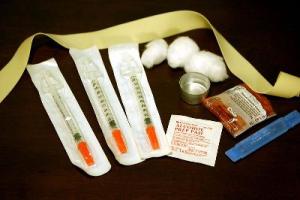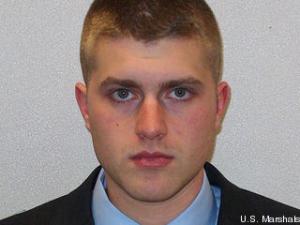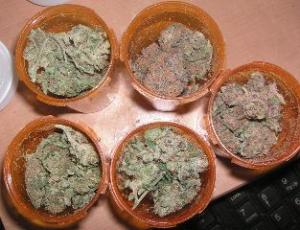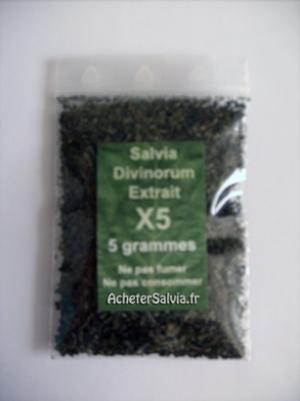California's Prop 36 requires treatment not jail for first- and second-time drug possessors, but the money for treatment has dried up. That's okay if you didn't really need treatment, not so good if you could have benefited from it.
The Thai government has officially embraced harm reduction, but the Interior Ministry doesn't seem to have gotten the memo. Mass roundups of suspected drug users are once again underway.
The US Surgeon General has given the thumbs up to needle exchanges. That should open up some grant opportunities.
Because the update was late last week, it's two weeks worth of Mexican mayhem this week. And yet another grim landmark as the death toll passes 36,000.
A California dope squad leader goes bad, a Rhode Island narc goes to prison, and, of course, there are a couple of jail guards in trouble.
A US Deputy Marshal and an alleged crack dealer became the eighth and ninth people to die in US domestic drug law enforcement operations so far this year.
The drug war is killing Americans at a rate of more than one a week. The year's 10th killing happened Tuesday in Massachusetts.
As the Montana Senate prepares to take up a medical marijuana repeal bill, a new poll suggests that public support for repeal is minimal.
Washington state's largest daily newspaper and Seattle's city attorney have both come out in support of marijuana legalization.
Chaikh El-Khayari advocated for the legalization of marijuana production for hemp and medical marijuana, but it was his accusations of high-level links to the hash trade that got him thrown in jail.
Canada is moving to ban the powerful but short-acting hallucinogen salvia divinorum. Psychonauts and anti-prohibitionists have 30 days to try to block the ban.
A call to free the weed comes from an unexpected quarter: Zimbabwe.
Events and quotes of note from this week's drug policy events of years past.
California voters opted for treatment over prison for drug possession offenders when they passed Proposition 36 with 61% of the vote in 2000. But now, five years after voter-mandated funding for treatment expired, the deficit-wracked state government is refusing to ante up, equally cash-starved counties are refusing to fund treatment locally, and drug offenders are ending up with neither treatment nor jail.

California State Capitol, Sacramento
When Prop 36 was fully funded by voter mandate, people who were convicted of first- or second-time drug possession offenses and decided to opt in were placed on probation with the requirement that they enter treatment. Treatment was funded by the state. But after that initial five-year mandate, and as California's budget crisis worsened, state funding has shrunk each year, and waiting lists for treatment for Prop 36 offenders began to grow.
That's even as the program has proven a success. According to
research conducted by UCLA, Prop 36 has reduced the number of people imprisoned for drug possession by 40%, or 8,000 people, saving taxpayers $400 million in corrections costs this year alone. Overall, Prop 36 has saved the state more than $2 billion in corrections costs.
Perversely, Prop 36 treatment didn't get a penny of it. Once the mandated funding of around $120 million a year expired, treatment funding fell from a high of $145 million in 2007-2008 to $118 million in 2008-2009, $18 million in 2009-2010, and zero last year. Gov. Jerry Brown (D) has proposed zero funding for Prop 36 treatment again this year.
"Prop 36 has helped reduce the number of people incarcerated for drug possession by nearly half, but there are still 9,000 of them in prison," said Margaret Dooley-Sammuli, deputy state director for Southern California for the
Drug Policy Alliance, the group that sponsored Prop 36. "Most were never convicted of any serious or violent offense, but are there because they have a drug problem and multiple offenses. This is the same population that we've successfully been diverting from prison in huge numbers with no negative impact on public safety or on the taxpayers."
Prop 36's mandates are still in effect even if no one is allocating money to fund them. The court must still offer probation with the requirement that the offender goes to treatment, but now, instead of going to treatment, offenders go on a waiting list, which has grown weeks- and months-long as funding shrank, and which now may become endless.
"If you don't really need drug treatment, that's not a problem," said Dooley-Sammuli, "but if you have a drug problem, you are being put at a serious disadvantage. You're not getting the treatment you're entitled to under Prop 36 and you're at greater risk of being found in violation of probation and incarcerated."
With the prospect of help from the state legislature grim, counties are scrambling to figure out what to do. None of the options look very good.
"Long before we had financial support, long before there were funds to subsidize persons involved in the criminal justice system in our treatment services, we were seeing people ordered into treatment by the courts. We have just reverted back to those days," Haven Fearn, director of the Contra Costa County Health Services Department's Alcohol and Other Drug Services Division, told the
Oakland Tribune. "We still offer treatment services to those individuals, but if the treatment slots are unavailable at the time the court orders it, many of them will have to go onto a waiting list."
Santa Cruz County announced that will "phase out" Prop 36 by no longer monitoring its participants, and other counties have suggested they will send offenders to Narcotics Anonymous. But counties that do not provide Prop 36 treatment could face lawsuits from Prop 36 offenders facing incarceration after failing three drug tests, if those those counties did not provide the treatment required by Prop 36.
"The counties can't opt out," said Dooley-Sammuli. "This is a sentencing statute. No county can end Prop 36. What they are choosing to end is the providing of treatment."
If legislators were smart, they would pay for treatment, said Dooley-Sammuli. "We hope they will realize that the state is crazy to not provide counties the resources to deal more effectively and more cost-effectively with people convicted of drug possession. Probation and treatment are both cheaper than jail. Not only should treatment be funded," she said, "but we know where to find it: In the $450 million currently locked up in the prison budget to incarcerate drug possessors."
Dooley-Sammuli also suggested California make possession a misdemeanor, not a felony. "The legislature recognizes that drug possession isn’t an offense that warrants incarceration in state prison, and we're asking that they follow through with what that really means," she said.
"Not only do we save money by making that a misdemeanor, we're also talking about making an important difference in the lives of people convicted of drug possession," she continued. "Having a felony on your record makes a huge difference in employment opportunities, lifetime earnings, being able to vote or adopt children, having custody of your own children, and other damaging collateral consequences."
If California isn't going to imprison drug possessors and it isn't going to provide them treatment, then perhaps it should just go ahead and decriminalize drug possession. Until it does, though, drug possession remains a felony in the Golden State. It's just that the state by law can't send offenders to prison and by choice won't pay to send them to treatment.
back to top
In a new wave of repression aimed at drug users, the government of Thailand has begun rounding up suspected "drug addicts" to be forced into "rehabilitation centers." That has health, human rights, and harm reduction groups expressing grave concerns, especially given previous Thai pogroms against drug users, like that in 2003, when tens of thousands were rounded up and more than 2,000 killed by police in summary executions.

Bangkok looks so modern, but some Thai drug policies are downright medieval. (Image via Wikimedia)
The
official announcement from the National News Bureau of Thailand of the government's plans came only last week. "The Ministry of Interior has picked next week to get all drug addicts across Thailand clean," it said, with Deputy Permanent Secretary for Interior Surapong Pongtadsirikul as putting the number of untreated addicts at 30,000.
"During 20-27 February, 2011, drug abusers in Bangkok will be brought to the rehabilitation centers to get clean," the notice continued. "There will be those who are encouraged to receive treatment on their freewill and those who will be forced against their will. A rehabilitation camp will be open for addicts elsewhere in Thailand where a rehab center is scarce."
The announcement also said staff training would be carried out and a location for a "makeshift rehab center for drug addicts" will be selected. Chillingly, it added that "their names will be recorded in the database specifically designed for easy tracking and providing updates on their progress in the future."
The roundup has already begun in Bangkok, according to Karyn Kaplan of the
Thai AIDS Treatment Action Group (TTAG). "Yes, people are being arrested right now," she said. "The police have quotas, they do this every few months, and this is just another excuse to round people up again. Even in our own small network of people who use drugs, people have been arrested, even workers at our harm reduction center."
While the Thai government officially embraces harm reduction principles -- it adopted harm reduction as a national strategy last fall -- it schizophrenically continues its crackdowns on drug users and sends them to "treatment centers" not worthy of the name.
"We don't call them treatment centers, because they aren't run by people who know how to treat people," said Kaplan. "They were originally set up because of prison overcrowding, but even though they have a policy that says drug users are patients, not criminals, they still use the police to sweep the streets and throw people into the system. But then the system says there is no room in prison, send them to the camps. The camps are in military bases and run by the military, and they aren't trained for that. The military is just housing them, and there are beatings and forced labor for no money. There is no due process," she said.
It is as if the Thai government's left hand doesn't know what its right hand is doing, said Kaplan. "The government at least pays lip service to harm reduction, but the Ministry of the Interior is not talking to the Narcotics Control Board, which sponsors the harm reduction policy," she said. "We have gotten unofficial statements from senior officials inside the Public Health Ministry saying they are going to speak with the board and the Interior Ministry about what Thailand might do more effectively."
In the mean time, the roundups continue.
The threat of the mass roundup of suspected drug users has led a coalition of Thai and international health, harm reduction, and human rights organizations to publicly air their fears that it will trample on human rights and could lead to the widespread abuses of drug users seen in other Thai anti-drug campaigns.
"These plans for mass detention and forced treatment raise considerable human rights concerns, especially given Thailand’s history of nationwide punitive and ineffective anti-drug campaigns," they said in an
open letter to the Thai government. "There is no way for the government to implement a campaign to forcibly 'treat' tens of thousands of people who use drugs without widespread human rights abuses taking place."
Groups signing on to the letter include the TTAG, the
International Harm Reduction Association (IHRA), the
International Drug Policy Consortium (IDPC), the
International Harm Reduction Program of the Open Society Institute, the
Canadian HIV/AIDS Legal Network, and the
International Network of People Who Use Drugs (INPUD).
"The mandatory rounding up and detention of people who use illicit drugs for the purpose of enforced treatment is not only a violation of their human rights, it's a violation of common sense -- enforced detention doesn't work," said INPUD's Jude Byrne. "Never has, never will! Communities need to look to the reason people are using drugs. Stop the systemic violence against the poor, minorities, people of different sexual persuasion and the unemployed. Rounding up the most marginalized people in the community will do nothing except provide jobs for the police and the people who run the detention centers. It will also drive INPUD's community underground so they are not able to access harm reduction information or equipment where it is available. The transmission of HIV and Hep C among the injecting drug using community will soar, and that is the real crime, not the use of drugs."
"This crackdown flies in the face of Thailand’s 2002 policy, which states that people who use drugs should be treated as patients, not criminals. There is nothing therapeutic about rounding up thousands of drug users and forcing them into military boot camps that fail to provide appropriate services and support," said Paisan Suwannawong, TTAG executive director and co-founder of the Thai Drug Users' Network.
While the Thai government refers to "drug addicts," its plans appear to include any drug users. Under the current plan, "occasional" users will be detained for one week, "continuous" users for two weeks, and those showing signs of drug dependence for 6 1/2 weeks (45 days).
"There are many reasons to be worried," said IHRA executive director Rick Lines. "Due process guarantees have been thrown out the window. What is the legal basis for mass detention? There are numerous examples of how forced detention in the name of drug dependence 'treatment' can lead to human rights violations and breaches of accepted principles of medical ethics," he continued. "What is more, many who do not need any form of drug dependence treatment will be herded into detention centers. Where is the clinical assessment?" he asked.
The activists also expressed concern about the temporary detention centers that will be set up outside Bangkok. They feared they would be operated not by health workers, but by police or soldiers, they said.
"We are profoundly concerned that these centers may be run by public security forces such as the police or paramilitary civil-defense organizations" said Kaplan. "It is dangerous and extremely disheartening given recent progress made in the country on injecting drug use and HIV. This can only serve to undermine those efforts in the long term. The immediate concern, however, is for the safety and well-being of those targeted."
But the medium term goal is to persuade the Thai government to embrace not merely the rhetoric of harm reduction, but the practice. That is going to take continuing pressure on the government, and the United Nations needs to step up, said Kaplan.
"We need more high-level action to push the government over to harm reduction," she said. "The World Health Organization and the UN Office on Drugs and Crime don't listen to civil society, so we need governments to step up. It is very important and progressive that Thailand is talking harm reduction, but to actually do it, they need a lot of help."
back to top

Needle exchanges save lives -- ask the Surgeon General (Image via Wikimedia)
In a notice dated last Friday, but posted in the
Federal Register Wednesday, US Surgeon General Regina Benjamin has determined that needle exchange programs constitute a form of drug treatment, which means that NEPS can qualify for funding under the Substance Abuse Prevention and Treatment block grant programs.
"[NEPs] are widely considered to be an effective way of reducing HIV transmission among individuals who inject illicit drugs and there is ample evidence that [NEPs] also promote entry and retention into treatment," Benjamin said in making the determination. "The Surgeon General of the United States Public Health Service has therefore determined that a demonstration syringe services program would be effective in reducing drug abuse and the risk that the public will become infected with the etiologic agent for AIDS."
The use of federal dollars to fund NEPS had been banned for 21 years until 2009, when a Democrat-controlled Congress undid it and President Obama signed the lifting of the ban into law. But moves are afoot in the Republican-controlled House of Representatives to put it back in place. The Surgeon General's notice will weaken that effort.
back to top
[This article updates a version previously published.]
by Bernd Debusmann, Jr.
Mexican drug trafficking organizations make billions each year smuggling drugs into the United States, profiting enormously from the prohibitionist drug policies of the US government. Since Mexican president Felipe Calderon took office in December 2006 and called the armed forces into the fight against the so-called cartels, prohibition-related violence has killed more than 35,000 people, including more than 15,000 last year. The increasing militarization of the drug war and the arrest of dozens of high-profile drug traffickers have failed to stem the flow of drugs -- or the violence -- whatsoever. The Merida initiative, which provides $1.4 billion over three years for the US to assist the Mexican government with training, equipment and intelligence, has so far failed to make a difference. Here are a few of the latest developments in Mexico's drug war:

Cash generated by drug prohibition buys lots of guns in Mexico (Image via Wikimedia)
In Ciudad Juarez,
18 people were killed in several incidents in the city. In one incident, gunmen attacked a bar, firing indiscriminately and killing six waitresses, a man dressed as a woman and another unidentified individual. It has been suggested by some that the incident is an example of "social cleansing" conducted by armed groups in the city. In another incident, a man was killed when being shot over 100 times by men armed with automatic rifles.
Friday, February 11
At the US-Mexico border at Nogales, a
smuggling tunnel was discovered by Border Patrol agents. The tunnel was hand dug and appears to still have been under construction.
Saturday, February 12
In Acapulco,
a second-grader was executed after being allegedly picked up by a car full of armed men. A note was left with the body suggesting that the boy was killed because his mother was an informant and for "stealing husbands."
In Guadalajara,
armed men used automatic weapons and grenades to attack a crowded nightclub. Six people were killed and at least 37 were wounded. It was later reported that three of the dead may have been Venezuelan nationals and one was a Colombian national. The reasons for the attack remain unclear.
Sunday, February 13
In Tamaulipas,
18 cartel gunmen were killed during a series of armed clashes between criminal organizations. The battles, which took place primarily on the Matamoros-Ciudad Victoria highway, were almost certainly between the Gulf Cartel and their former enforcers of the Zetas Organization.
In Ciudad Juarez,
ten people were murdered across the city. In one incident, four young men were gunned down leaving a soccer game. Reports indicate that the attacking gunmen in that incident were all young men, no older than 20 years of age.
In Monterrey,
the head of Nuevo Leon's security and intelligence agency was killed. Homero Salcido Trevino, 40, was traveling home Sunday night when gunmen kidnapped him and drove him to a central area of Monterrey, where he was shot and his body left in the backseat. The car was then set aflame.
Monday, February 14
Near Ciudad Juarez,
the body of the brother of a murdered activist was found in a drainage ditch near a military checkpoint. The body is that of Elias Reyes, whose sister, Josefina Reyes, a social activist who sought to investigate the murder of women in the city, was murdered in January. Elias Reyes had been missing since being abducted by gunmen along with his sister and sister-in-law. A child and the Reyes Salazar siblings' mother were released by the gunmen.
Tuesday, February 15
In San Luis Potosi,
two American Immigration and Customs Enforcement (agents) were ambushed by heavily armed gunmen. Jaime Zapata, 32, died while a second agent, Victor Avila, was wounded and remains hospitalized. It is whether the gunmen had actively been seeking out the Americans. SUV's are highly-prized by the cartels, so a possibility exists that this was a carjacking incident gone wrong.
President Obama later called the Zapata family to offer his condolences.
Wednesday, February 16
In Washington,
a special task force was formed to investigate the incident in which the ICE agents were shot. US investigators -- whose total number may reach the dozens -- began arriving in Mexico.
Thursday, February 17
In Ciudad Juarez,
at least 15 people were killed. Two police officers were killed in two different shooting incidents. The killings came the same day as a large group of government officials were in the city to report on one year of the Todos Somos Juarez plan, which was formed after 16 young people were killed at a party. On Thursday, they reported that overall crime in Juarez was down 45%.
In Arizona,
nine people were arrested for allegedly being part of an arms smuggling network which shipped weapons to Mexico. During the operation, which also took place in Texas and inside Mexico, police seized some 300 weapons including assault rifles. Another seven defendants were previously charged and are awaiting trial.
Friday, February 18
In Ciudad Juarez,
twenty people were murdered in a series of violent incidents across the city. The dead include at least three pairs of couples and a member of the state police intelligence service. In one instance, a man and woman were shot dead in a home after it was stormed by at least three car loads of heavily armed gunmen, who used a truck to ram through the front gate of the home.
In Nuevo Leon,
eight gunmen were killed during a series of firefights with the army.
Saturday, February 19
In Acapulco,
at least twelve taxi drivers or passengers were gunned down in a series of incidents across the city. The motives remain unclear. Taxi drivers in the area are sometimes recruited by cartels to traffic and move narcotics.
In Ciudad Juarez,
at least 19 people were killed on Saturday, bringing the number of murders to almost 40 in a 48-hour period.
In Reynosa,
President Calderon announced that at least four additional battalions will be deployed to Mexico's northern border. Calderon's comments came during an Army Day speech at a nearby military base.
In Torreon, Coahuila,
five people were killed when gunmen opened fire inside two bars. A sixth person died the next day. At least eight others were wounded, including a two-year old girl whose mother was killed. Witnesses said that at least one individual returned fire and was then taken into police custody.
Tuesday, February 22
In an interview published Tuesday in Mexico City,
President Calderon said that the United States is not doing enough to help Mexico, especially in stemming the number of American-bought weapons headed south into Mexico. He also criticized the way the Mexican government was characterized in documents made public by WikiLeaks, saying that US-Mexico relations were strained by the contents of the leaks.
In Guerrero,
Mexican marines seized 72 sticks of commercial explosives at an armed camp in a rural area of the state near the border with Michoacan. The marines also found assault rifles, grenades and a small of marijuana.
In nearby Acapulco, the bodies of seven men were discovered. Three of the bodies were mutilated and dumped on a main highway leading to a tourist area. One of the other bodies found was half-buried and decapitated. Mexican media report that notes threatening a local army officer were left with some of the bodies.
In Mazatlan, two people were shot dead within earshot of foreign tourists at a hotel.
Wednesday, February 23
In Acapulco,
three bodies were discovered inside a taxi. One male victim had been decapitated. The taxi had been stolen earlier in the day.
In Mexico City,
the Mexican Defense Department announced that one individual suspected of participating in last week's attack on two US ICE agents has been detained by Mexican forces. They did not name the individual or say where he was captured. Jose "El Mamito" Rejon, a high-ranking Zeta and former Mexican army corporal, has been named by various sources as likely having participated or ordered the attack, but it is unclear if Rejon is the man in custody.
Total Body Count for the last two weeks: 297
Total Body Count for the Year: 1,175
Total Body Count for 2010: 15,273
Total Body Count for 2009: 9,600
Total Body Count for 2008 (approx.): 5,400
Total Body Count for 2007 (approx): 4,300
Total Body Count for Calderon’s drug war through 2010: 34,849
Total Body Count for Calderon’s drug war to date: 36,024
back to top
A California dope squad leader goes bad, a Rhode Island narc goes to prison, and, of course, there are a couple of jail guards in trouble. Let's get to it:

Oh, temptation! (Image via Wikimedia)
In Martinez, California
, the former commander of the Central Contra Costa Narcotics Enforcement Team was arraigned last Friday on charges he stole seized drugs and resold them on the black market. Norman Wielsch, 49, faces 28 felony counts around the alleged theft and sale of marijuana, steroids, prescription pills, methamphetamine, and meth precursor chemicals. Prosecutors said in court that Wielsch had confessed to stealing and dealing drugs with the help of a friend who was a private investigator. The friend has also been arrested. Prosecutors said that since November, the pair had made at least six drug sales and netted more than $13,000. The drug task force Wielsch ran until last week has been put on hiatus while officials review its drug-handling practices. Wielsch's family said he was under financial stress. His bail was reduced from $1 million to $400,000 after he handed in his passport.
In Providence, Rhode Island,
a former Providence narcotics detective was sentenced February 17 to eight years in prison in a drug scandal that has already netted two other officers. Joseph Colanduono, who had been assigned to a DEA task force, had pleaded guilty in December to two counts of conspiracy to deliver drugs, larceny over $500, and harboring a criminal. He admitted he helped arrange cocaine deals between one of his informants and another police officer.
In Corpus Christi, Texas,
a former Nueces County jail guard was sentenced last Friday to six years in prison for attempting to smuggle drugs into the jail.
Jamyrria Reed, 29, went down after an inmate tipped off officials that Reed was offering to supply drugs to prisoners. She pleaded guilty to bribery and possession of cocaine. She could have faced up to 99 years behind bars, but will probably be out in about one year.
In Lancaster, Pennsylvania,
a Lancaster County prison guard was arrested February 17 for selling drugs. Guard Douglas Brosey, 42, went down after selling $750 worth of cocaine to a snitch. He is charged with possession and delivery of a controlled substance. Oh, and he's been fired, too. There is no word on bail.
back to top
Editor's Note: This year, Drug War Chronicle is going to try to track every death directly attributable to drug law enforcement during the year. We can use your help. If you come across a news account of a killing related to drug law enforcement, please send us an email at [email protected].]

Derek Hotsinpiller, killed in the line of duty
A Deputy US Marshal and a fugitive alleged crack cocaine dealer were killed in a shootout in Elkins, West Virginia, Wednesday. Two other US Marshals were shot and wounded in the incident. The deaths are
the eighth and ninth killings in US drug law enforcement operations so far this year.
According to West Virginia State Police, US Marshals and State Police troopers went to the home of Charles Edward Smith to serve a federal warrant for failure to appear on drug possession and firearms charges. Police announced themselves, then broke down the door and entered the home. Smith then opened fire with a shotgun, fatally wounding 24-year-old Deputy US Marshal Derek Hotsinpiller. A marshal and a trooper then opened fire, killing Smith.
Hotsinpiller is the first Deputy US Marshal killed by gunfire since the Ruby Ridge, Idaho, stand-off in 1992.
Smith was the subject of a 2006 federal arrest warrant after being indicted for possession with intent to distribute crack cocaine and being an unlawful drug user in possession of a firearm in a 2005 arrest. Those charges stemmed from an attempt to sell three grams of crack cocaine.
This month, an informant told law enforcement Smith was at the Elkins address, and marshals doing surveillance spotted him outside the home. Marshals applied for a search warrant for the address, and their attempt to execute it led to Wednesday's deadly confrontation.
Police said they seized $354 in cash, a number of coins, a Rolex wristwatch, a set of digital scales, various crack pipes, a black knife, and eight firearms from Smith when he was arrested in 2005. There was no word on what, if anything, was seized Wednesday.
back to top
[Editor's Note: This year, Drug War Chronicle is going to try to track every death directly attributable to drug law enforcement during the year. We can use your help. If you come across a news account of a killing related to drug law enforcement, please send us an email at [email protected].]

(video from necn.com/pages/landing?blockID=415731)
A Fitchburg, Massachusetts man became the
10th person to die in US drug law enforcement operations this year after being shot by a state trooper in Ashby Tuesday afternoon. The victim, Roger Padilla, 21, was pronounced dead at the scene.
According to the Massachusetts State Police, the state trooper "was in fear for his life" when he fatally shot Padilla as Padilla drove toward him after a brief car chase. The unidentified trooper was conducting surveillance as part of a drug investigation when he tried to pull over the silver Nissan Maxima Padilla was driving.
"The Maxima refused to stop for the trooper, leading the trooper on a brief pursuit up Pine Road to the end of the road, which ends in a
cul-de-sac," said State Police spokesman David
Procopio. "At that
cul-de-sac, the trooper exited his vehicle and repeatedly commanded the driver in the suspect vehicle to exit his own vehicle. The suspect ignored repeated commands to exit his vehicle."
The driver began driving his car toward the trooper, according to
Procopio. The trooper, fearing for his life, fired his weapon, striking the victim,
Procopio said. The trooper was in an unmarked black SUV and was alone.
"The trooper was alone in this location. The trooper is engaged in a drug investigation and the suspect was engaged in activity that the trooper considered part of that investigation,"
Procopio said.
Drugs were found at the scene,
Procopio said.
back to top
The Montana House voted last week to repeal the state's voter-approved medical marijuana, but a new poll suggests that action was out of touch with sentiments in the state. According to a Public Policy Polling survey released Tuesday, while there is significant support for tightening the regulation of medical marijuana, only 20% of Montanans want to see it repealed.

medical marijuana (courtesy Coaster420 and wikimedia.org)
The poll, conducted on behalf of the medical marijuana advocacy group
Patients and Families United, found that three-fourths of Montanans thought that the medical marijuana law should either be tightened or stay as is, but not repealed. Nearly half (49%) of respondents wanted a medical marijuana law with strict regulations, while 27% though the medical marijuana status quo was just fine.
The telephone poll of 2,212 Montana residents was conducted last Saturday and Sunday. The poll’s margin of error is plus or minus 2.1%.
In 2004, 62% of voters approved the medical marijuana law at the ballot box. But in the past couple of years, medical marijuana has exploded in the state, with the number of approved patients topping 28,000. Medical marijuana entrepreneurs have pushed the envelope, exciting opposition with traveling caravans crisscrossing the state complete with paid physicians writing recommendations after brief consultations.
Discontent over Wild West aspects of Montana medical marijuana has led to competing proposals in the state legislature to close loopholes while still protecting patient rights. But it has also led more extreme opponents to attempt to roll it back completely, as the House voted last week.
Legislators should heed the will of the voters, said Tom Daubert, founder and director of Patients and Families United. "Repealing this law would be the only step worse than doing nothing to fix it," Daubert said. "It's neither moral nor practical to suddenly redefine thousands of suffering patients as criminals. Taxpayers can't afford that, and patients who are leading more comfortable, productive lives using cannabis rather than narcotics can't be expected to happily go backwards. This voter-adopted policy is benefiting a great many people, and it deserves to be fixed in ways that will address everyone's concerns. We are gratified to know that Montanans agree."
Will the state Senate get the message? Stay tuned.
back to top
In an editorial appearing in last Sunday's print edition, Washington state's largest circulation daily newspaper has called on the state legislature to legalize marijuana. "Marijuana should be legalized, regulated and taxed," the Seattle Times editorial board wrote.

marijuana-plants_9.jpg
The endorsement comes as the legislature ponders
House Bill 1550, which would do just that. It also comes just days after a similar endorsement from first term Seattle City Attorney Peter Holmes, who published an op-ed titled
Washington State Should Lead on Marijuana Legalization in the Times Thursday.
Legalization is within reach in Washington, according to a
SurveyUSA poll released late last month. That poll had support for marijuana legalization in general at 51% in the state, although that figure dropped to 47% when respondents were asked if they supported marijuana being sold through state liquor stores, as HB 1550 envisions.
In its Sunday editorial, the Times said the Evergreen State could take the first step toward ending pot prohibition nationwide. "The push to repeal federal prohibition should come from the states, and it should begin with the state of Washington," said the Times.
The Times noted that Washington state had been in the vanguard of medical marijuana legalization and that Seattle had led the move to make adult marijuana possession offenses the lowest law enforcement priority. "It is time for the next step," the Times said.
Declaring that "marijuana is available now," the Times declared that "prohibition has not worked" and has imposed numerous costs -- to people arrested and imprisoned, in wasted law enforcement resources, in corruption and "disrespect for the law," in encouraging a criminal lifestyle among youth, and in lost tax revenues.
Although legalization would put Washington at odds with federal law, leading to a political and legal fight, somebody has to do it, and it might as well be Washington, the Times said.
[Editor's Note: HB 1550 might certainly ignite a political fight, but the legal conflict aspect tends to be overstated. As with state medical marijuana laws, the federal government has been found to have legal power to enforce federal drug laws, even in states that have broken with federal policy, but no federal power has been found which forces states to have drug laws on their own books.]back to top
Last week, Moroccan human rights activist, denouncer of corruption, and marijuana legalization advocate Chakib El-Khayari began his third year in prison for "offending the Moroccan state." El-Khayari, president of the Human Rights Association of the Rif region in Morocco, has been jailed since February 17, 2009, and now, European drug reform activists and international human rights groups are calling for his release.

Chaikh El-Khayari (encod.org)
El-Khayari, who is also known for defending the rights of the Amazigh (Berber) people and African migrants passing through en route to Europe, aroused the ire of the Moroccan state for declaring to the press that
the Moroccan military and police are collaborating in the trafficking of hashish to Europe. In 2008, he also took the path-breaking step of
initiating a national debate on the legalization of industrial hemp and medical marijuana.
El-Khayari was arrested on February 17, 2009, and has been jailed ever since. He was convicted of "offending the Moroccan state" for his statements about the involvement of high-ranking officials in the police, the army, and the government in the hash trade. He was also convicted of violating Morocco's foreign exchange laws for depositing in a bank in Madrid a check from a Spanish newspaper for an article he had written.
In an
open letter to Mohamed VI, the King of Morocco, the
European Coalition for Just and Effective Drug Policies (ENCOD) is calling for El Khayari's immediate release. It is also calling on activists to print out and sign the letter, sending copies to the king and to the Moroccan embassy in their countries.
"Nothing justifies the heavy sanction that has been applied to Chakib El-Khayari," the letter says. "It is a manifest act of repression that is contrary to the international instruments to protect human rights that were ratified by Morocco and in particular, the international agreement on civil and political rights between Morocco and the European Union. We denounce firmly the detention of Chakib El-Khayari and urge his inmediate and unconditional release."
It's not just drug reformers. Five months ago,
Amnesty International called for El-Khayari's release, saying it considers him a prisoner of conscience, "solely detained for his anti-corruption statements and his human rights activities."
The call for El-Khayari's release comes as the Moroccan government teeters under the wave of popular unrest that is sweeping North Africa and the Middle East.
Five people were killed during widespread protests seeking constitutional reform Sunday.
back to top

Salvia divinorum extract (Image via Wikimedia)
In an official notice published Saturday in the
Canada Gazette (scroll down), Health Canada has proposed banning the potent, fast-acting hallucinogen salvia
divinorum and its active ingredient,
salvinorin A. It wants to add both to Schedule III of Canada's Controlled Drugs and Substances Act, making it illegal to possess, produce, sell, import, or export the substances.
Although the notice was dated February 4, it was not posted in the Gazette until February 19. Interested parties, or stakeholders, have 30 days from the date of publication to comment.
Salvia is currently considered as a natural health product in Canada. Natural health products are not legal to sell in Canada without authorization from Health Canada. Health Canada has never authorized the sale of salvia, but neither has it taken any steps to enforce that regulation.
Salvia and salvia extracts are widely available in Canadian head shops and via the Internet. The Canadian Alcohol and Drug Use Monitoring Survey in 2009 found that 7.3% of 15-to-24-year-olds had tried salvia at least once. [Editor's Note: Given the powerful, even scary, nature of the salvia high, it is probably safe to assume that many of them tried it only once.]

Salvia-inspired art (Image via Wikimedia)
Salvia is "reported to be one of the most prevalent herbal products used as an alternative to illicit drugs," Health Canada said. "Health Canada is concerned that the ready availability and use of salvia
divinorum poses a risk to the health and safety of Canadians, particularly youth." Adding it and
salvinorin A to the Controlled Drugs and Substances Act would "enable law enforcement agencies to take action against suspected illegal activities involving these substances," it added in the notice.
Australia, Belgium, Denmark, Finland, Germany, Italy, Spain and Sweden are among countries that have already regulated or banned salvia, as have some dozen states in the US. The DEA has considered salvia a substance of interest for nearly a decade now, but has not yet moved to classify it as a controlled substance.
back to top
A member of parliament (MP) from Zimbabwe's ruling ZANU-PF (Zimbabwean African National Union -- Patriotic Front) has called for the legalization of marijuana cultivation for medicinal reasons and/or for export. That call was rejected by the country's agriculture minister.

Flag of Zimbabwe (Image via Wikimedia)
in "remote areas" as medicine and to export to countries where it is legal. According to New Zimbabwe News, the notion prompted prolonged laughter and uproar in the chamber.
"I would like to know from the Minister the national policy with regards to creating export processing zones (EPZ) in remote areas," said Mudarikwa. "The reason for creating the EPZs in those remote areas is so that we can grow marijuana. Other countries like California and Norway have legalized it," he added.
[Editor's Note: Mudarikwa is a bit confused here. California is a state, not a country, and Norway has not legalized it. Perhaps he was thinking of the Netherlands.]
Agriculture Minister Joseph Made was having none of it. "That crop is not authorized in this country, and from a policy point of view, this crop is prohibited," he responded.
ZANU-PF is the party headed by Zimbabwe's long-time authoritarian ruler, Robert Mugabe. Since February 2009, ZANU-PF has entered into a tense coalition government with Morgan Tsvangarai and the Movement for Democratic Change. Mugabe remains as president, a post he has held since 1987, while Tsvangarai serves as prime minister.
back to top
March 1, 1915: The Harrison Narcotics Act goes into legal effect, beginning federal prohibition of drugs.
February 26, 1995: Former mayor of San Francisco Frank Jordan is quoted in the Los Angeles Times, saying, "I have no problem whatsoever with the use of marijuana for medical purposes. I am sensitive and compassionate to people who have legitimate needs. We should bend the law and do what's right."
February 28, 1995: In compliance with the 1994 Crime Act, the US Sentencing Commission issues a report on the current federal structure of differing penalties on powder cocaine and crack cocaine, recommending that Congress "revisit" penalties enacted for those offenses.
February 29, 1996: In his State of the Union address, President Clinton nominates Army General Barry McCaffrey, a veteran of Vietnam and Desert Storm, as director of the Office of National Drug Control Policy. McCaffrey had been head of the US Southern Command (SouthCom) which provides military backup for US policy in Latin America -- a policy long linked with chronically ineffective and corrupt drug enforcement.
February 25, 1997: President Bill Clinton proposes spending $175 million for a national television blitz targeting drug use by America's youth. Matching funds from the private sector would be sought. Clinton says, "If a child does watch television -- and what child doesn't -- he or she should not be able to escape these messages."
February 28, 1998: President Clinton re-certifies Mexico as a fully cooperating ally in the struggle against drug smuggling, despite a letter from 40 US senators urging Clinton to deny certification.
February 27, 1999: Conservative William F. Buckley, Jr. is quoted in the New York Post: "Even if one takes every reefer madness allegation of the prohibitionists at face value, prohibition has done far more harm to far more people than marijuana ever could."
March 1, 1999: The advice columnist Abigail Van Buren in her popular column "Dear Abby" says: "I agree that marijuana laws are overdue for an overhaul. I also favor the medical use of marijuana -- if it's prescribed by a physician. I cannot understand why the federal government should interfere with the doctor-patient relationship, nor why it would ignore the will of the majority of voters who have legally approved such legislation."
February 24, 2000: Members of the Belgian Parliament make a proposal to modify their laws in order to partially decriminalize the possession of cannabis and its derivatives. Simple marijuana possession is effectively decriminalized three years later.
February 28, 2000: UPI reports that Spanish researchers said the chemical in marijuana that produces a "high" shows promise as a weapon against deadly brain tumors. A research team from Complutense University and Autonoma University in Madrid found that one of marijuana's active ingredients, THC, killed tumor cells in advanced cases of glioma, a quick-killing cancer for which there is currently no effective treatment.
March 1, 2004: The State Department releases its annual International Narcotics Control Strategy Report (INCSR) revealing that Afghanistan produced a larger poppy crop in 2003 than ever before. Some 61,000 hectares of land were cultivated with poppy in 2003 -- up almost twofold from about 31,000 hectares in 2002.
back to top













